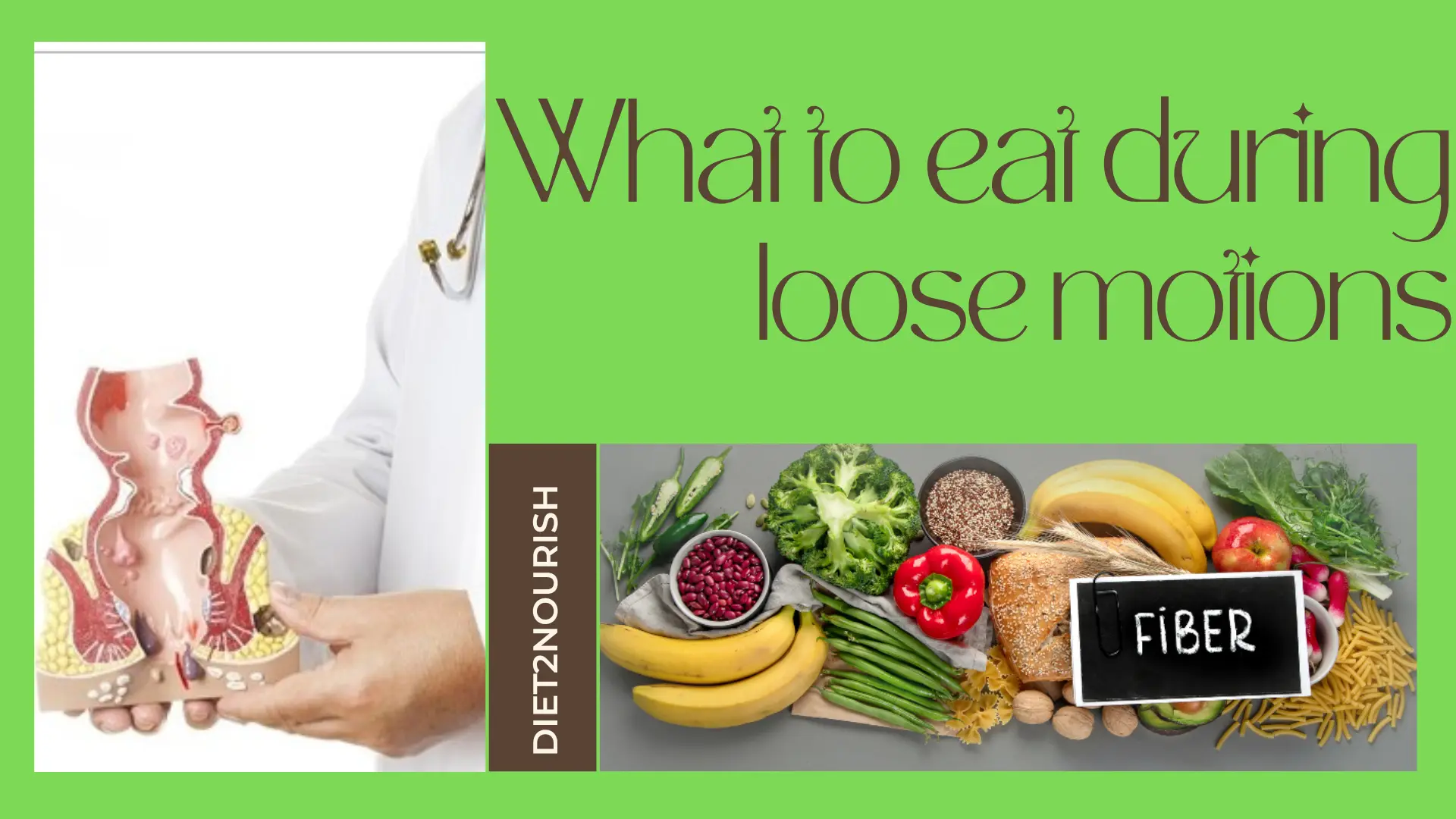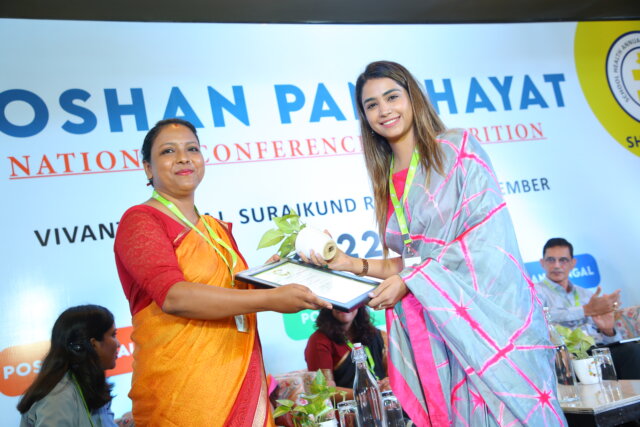Constipation Diet Plan
With expert dietician advice, get the best diet plan for constipation. Alleviate constipation with the help of this article. It is suitable for people of all groups and genders.
Constipation is a common problem but better not to take it casually. It can cause discomfort and can even lead to serious problems.
Here you will get to know all about constipation. Moreover, we will help you with a top-notch diet plan for constipation. Following this, you can get rid of your constipation.
Furthermore, such a diet plan helps in maintaining bowel movements. This keeps your tummy clean and healthy.
What is meant by Constipation?
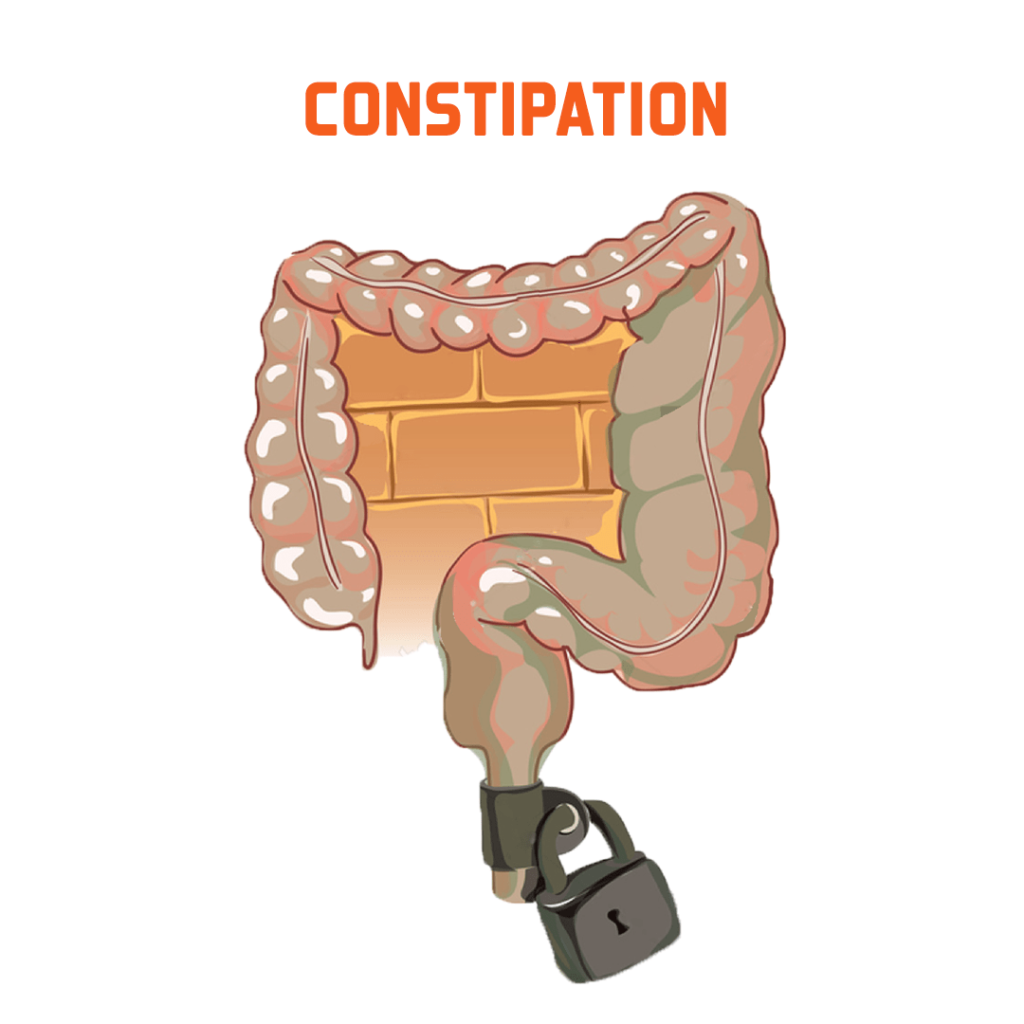
Constipation is a health condition where the patient’s bowel movements are reduced. This causes difficulty in passing stool. Moreover, hard and dry stools are passed which irritates.
Moreover, studies reveal that the bowel movement of a constipated person is fewer than three bowel movements per week.
Furthermore, the risk of constipation increases with age. Therefore, it is very important to keep track of your diet as you age. in addition to this, there are various lifestyle factors that can also cause constipation.
Symptoms of constipation
People with constipation tend to struggle with the following symptoms:
- Hard, unusual and lumpy stools
- The texture of the stool appears to be like stones
- the bowel movements accompanied by discomfort and pain
- Loss of appetite or reduced appetite
- Slight swelling in the abdomen
- Abdominal pain
What are the possible causes of constipation?
In order to treat a condition, its causes must be known. There are a variety of factors that lead to constipation.
● Dietary causes
Dietary causes like not eating enough fibre or not consuming enough fluids are responsible for constipation. Moreover, a poor diet also contributes to constipation.
● Lifestyle Changes
Any change in your routine and lifestyle may cause disturbance in eating habits. This can further lead to constipation.
● Ignorance
Often, ignoring the urge to pass stool is harmful. It can lead to constipation. Therefore, whenever you feel the urge to pass stool, do not fight it or control it.
● Immobility and lack of exercise
Not exercising properly also leads to constipation. Therefore, mobility is very necessary for a healthy bowel movement. You can consider jogging, Zumba, aerobics, swimming, dancing or any physical exercise.
How does a Fibre Rich Diet Plan help in getting rid of Constipation?
As it is well said you are what you eat. If you eat good food, your body will remain in a healthy state. This diet plan is rich in fibre which helps in balancing bowel movements.
The diet plan for constipation contains the appropriate amount of fibre that an average adult needs. Furthermore, fibre is of two types and the diet is rich in both of them.
Soluble fibre
Soluble fibre slows down the digestion process and enables regular bowel movement. Moreover, soluble fibre absorbs water and forms gel. Oats, legumes, nuts and seeds like chia seeds contain soluble fibres.
Insoluble fibre
Insoluble fibre repels water and forms bulk to the stool. This helps the story in moving to the digestive tract. Furthermore, this entire process helps in easing constipation and passing an easy stool.
Wheat bran, vegetables and whole grains are an abundant source of insoluble fibre.
Best Foods for Constipation
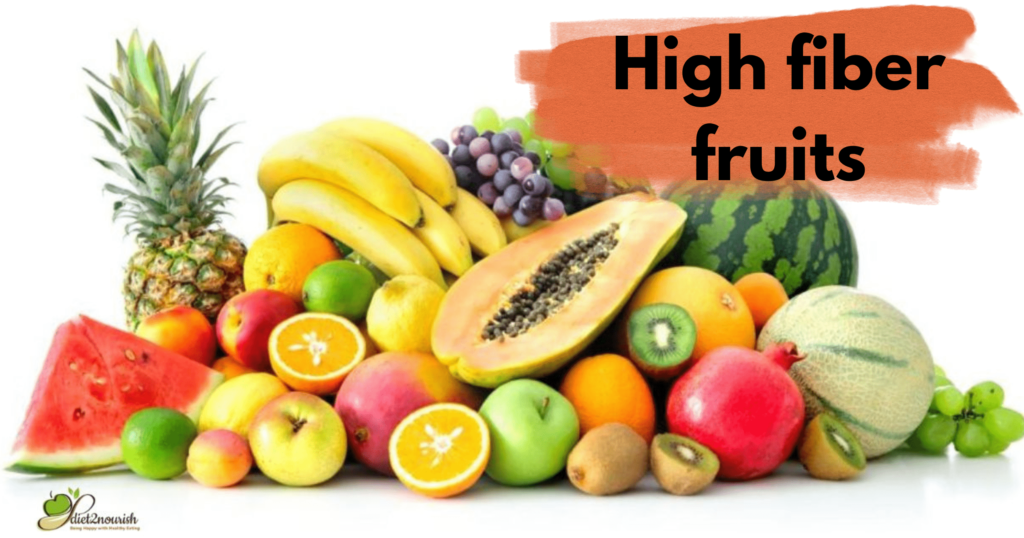
Fruits rich in fibre for Constipation
Fruits rich in fibre must be considered. There are numerous fruits that are rich in fibre and can be eaten to relieve constipation. In addition, they help in relieving abdominal discomfort and other gastrointestinal symptoms. In addition, these symptoms include pain, indigestion, discomfort etc.
Some of them are stated and discussed below:
- Kiwi
- Apples
- Pears
- Grapes
- Blackberries
- Raspberries
Fibre-rich veggies for Constipation
Veggies constitute one of the most important parts of a diet. Therefore, be mindful about which vegetable to include in your diet plan for constipation. Some of the healthy veggies are given below:
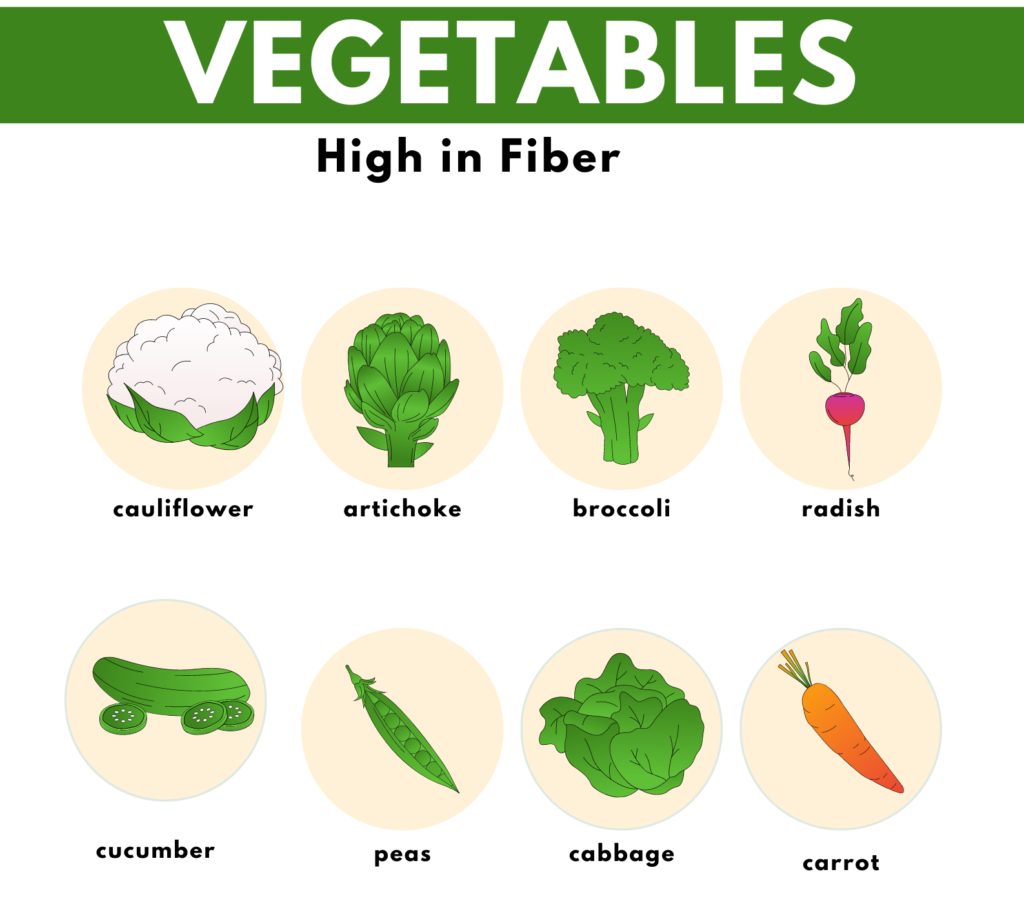
- Spinach
- Broccoli
- Sweet potatoes
- Beans
- Peas
- Lentils
Nuts for Constipation
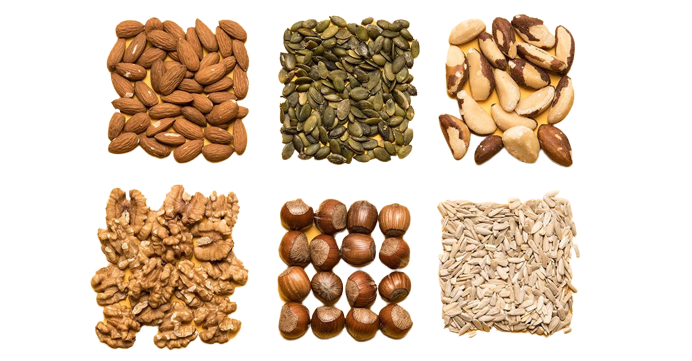
Following nuts are rich in fibre. They can be munched in between meals.
- Almonds
- Pine nuts
- Pistachios
- Hazelnuts
- Pecans
- Chest nuts
Foods to avoid when constipated
Certain foods must be avoided when suffering from constipation. These foods that need to be excluded in the diet are given below:
Fruits
Avoid the following fruits when trying to get rid of constipation.
- Bananas
- Papayas
- Nectarines
- Cantaloupe
Vegetables
Given below is the list of most vegetables. You need to exclude them from your constipation diet in order to get your bowel movements right.
- Carrots
- String beans
- Beets
- Asparagus tips
- Lettuce
- Potatoes
non-vegetarian
Get to know about all the non-vegetarian foods that you need to avoid when on a diet plan for constipation.
Eggs
Eggs are low in fibre. They are known to cause constipation. Eggs must be avoided or combined with high protein foods to make a proper meal.
Red meat
Red meat contains minimal fibre which adds bulk to the stool. Moreover, being heavy, it replaces the fibre-rich options you can find. This is because it can comprise a large portion of your meal in a day. Mutton, goat, beef, pork, lamb, or all examples of red meat.
Tender meat
Tender meat is low in fibre. It increases the chances of constipation. In addition, it must be excluded from the diet plan for constipation.
Dos and don’ts when following a Diet Plan for Constipation
Get to know about the various dos and donts when following the diet plan for constipation. They will help in efficient and faster results.
Dos when struggling with constipation
Here is a list and description of things to combine with the diet plan for constipation. It will lead to effective results.
● Hydrate yourself
To bulk and pass the stool, the colon needs to absorb water from the partially digested food. Therefore, staying hydrated plays an important role in preventing constipation.
Moreover, it is said that fibre and water go hand in hand. Fibre works well when consumed with adequate water. In addition to this, when fibre absorbs water, bowel movement is improved.
● Dried fruits
Fried fruits like prunes, dates, raisins and figs are high in fibre. Furthermore, Dried fruits make a tasty and worthwhile snack. Including them in your diet plan for constipation does wonders.
In addition to this, prunes are known as a natural remedy for constipation. They are rich in gut friendly phenolic compounds that relieve constipation.
● Seeds
Seeds are a very good option that you can consider while preparing a diet plan for constipation. The best options to consider when thinking of consuming seeds are described below.
Flax seeds
Flaxseeds have been known to ease constipation since ancient times. Their laxative properties make them suitable to do so. Moreover, flaxseeds are rich in both soluble and insoluble fibre.
In addition to this, flaxseeds can also help in increasing beneficial gut bacteria in the intestines.
Chia seeds
Chia seeds are one of the most fibre-dense foods found. The fibre in chia seeds is composed of 85% insoluble fibre and 15% soluble fibre. In addition to this, Chia seeds soaked in water form a gel which in the stomach helps in passing stools conveniently. Therefore, you must consume Chia seeds at least once a day when struggling with constipation.
Don’ts when switching to the Diet Plan for Constipation
Given below is a description of the things that you should not do or consume when on the diet plan for constipation.
● Alcoholism
Alcohol is known to be a dehydrating agent for the body. Dehydration removes the water and causes the inability to pass stool. Therefore, it can be concluded that alcoholism is associated with constipation. In addition to this, you need to avoid alcohol to get rid of constipation.
● Caffeine
Caffeine is a stimulant but can have many adverse effects on health. People struggling with constipation should avoid foods with caffeine. Moreover, consuming caffeine during dehydration will make constipation even worse. Therefore, you need to cut down on trees, coffee, soft drinks, and energy. Drinks when on a diet plan for constipation.
● Gluten
Gluten is a protein which can be linked to constipation. It is mainly found in wheat, rye, kamut and barley. In addition to this, avoiding foods containing gluten can heal the stomach and relieve constipation.
● Fast food
Fast foods are deep-fried and undergo various processes. They are very low in Fibre and largely responsible for constipation. In addition to this, fast food contains no nutritional value but only affects health negatively. Therefore, when following the diet plan for constipation, you need to cut down on fried and fast food.
7 Days Diet Plan for Constipation
The diet plan for constipation is as follows-
Day-1 Diet Plan for Constipation
| TIME | SUNDAY |
| Breakfast 8:00 AM | Idli + green chutney |
| Mid meal 11:00 AM | 1 Cup lentil + vegetable mixed soups |
| Lunch 2PM | Rice + rotis +sabzi + salad + fresh curd |
| Evening Meal 4PM | Fruit salad + Green tea |
| Dinner 8 PM | Green veggie (high -fiber sabzi) and rice |
Day-2 Diet Plan for Constipation
| TIME | MONDAY |
| Breakfast 8:00 AM | Methi Paratha +Raita |
| Mid meal 11:00 AM | Vegetable soup |
| Lunch 2PM | Rice + rotis +sabzi + salad + fresh curd |
| Evening Meal 4PM | Brown rice flakes poha + Green tea |
| Dinner 8 PM | Green veggie (high -fiber sabzi) and Bhakris |
Day-3 Diet Plan for Constipation
| TIME | TUESDAY |
| Breakfast 8:00 AM | Dosa + Sambar + chutney |
| Mid meal 11:00 AM | Fruit salad |
| Lunch 2PM | Rice + rotis +sabzi + salad + fresh curd |
| Evening Meal 4PM | Roasted nuts +Dry Fruits + Green tea |
| Dinner 8 PM | Green veggie (high -fiber sabzi)+curd + and Bhakris |
Day-4 Diet Plan for Constipation
| TIME | WEDNESDAY |
| Breakfast 8:00 AM | Vegetable oats upma + curd |
| Mid meal 11:00 AM | Tender coconut water + dry fruits |
| Lunch 2PM | Rice + rotis +sabzi + salad + fresh curd |
| Evening Meal 4PM | Boiled chana + Green tea |
| Dinner 8 PM | Green veggie (high -fiber sabzi)+curd + and Bhakris |
Day-5 Diet Plan for Constipation
| TIME | THURSDAY |
| Breakfast 8:00 AM | Oatmeal |
| Mid meal 11:00 AM | Fruit salad + dry fruits |
| Lunch 2 PM | Rice + rotis +sabzi + salad + fresh curd |
| Evening Meal 4 PM | Ragi rusk + Green tea |
| Dinner 8 PM | Green veggie (high-fiber sabzi)+curd + and Bhakris |
Day-6 Diet Plan for Constipation
| TIME | FRIDAY |
| Breakfast 8:00 AM | Porridge/Dalia |
| Mid meal 11:00 AM | Sprouts + dry fruits |
| Lunch 2 PM | Rice + rotis +sabzi + salad + fresh curd |
| Evening Meal 4 PM | Makhana + Green tea |
| Dinner 8 PM | Green veggie (high -fiber sabzi)+curd + and Bhakris |
Day-7 Diet Plan for Constipation
| TIME | SATURDAY |
| Breakfast 8:00 AM | Besan chilla with chutney |
| Mid meal 11:00 AM | 3 ragi biscuits + 4 Almonds |
| Lunch 2 PM | Rice + rotis +sabzi + salad + fresh curd |
| Evening Meal 4 PM | Protein drink almond milk + dry fruits |
| Dinner 8 PM | Green veggie (high -fiber sabzi)+curd + and Bhakris |
Frequently Asked Questions (FAQs)
How many types of constipation are there?
Answer
There are two types of constipation, namely, acute and chronic constipation. In case of acute constipation, it lasts for a few days. Moreover, it is caused by lifestyle factors or medications.
On the other hand, chronic constipation lasts for several weeks or even months in worst case scenarios. Furthermore, chronic constipation is linked to gastrointestinal, metabolic, or neurological conditions.
Why is kiwi considered the best fruit to relieve constipation?
Answer:
Kiwi is rich in fibre. But other than that, it is found to have an enzyme called actinidin. This enzyme effectively manages symptoms of constipation. In addition to this, the water content in kiwi is significantly higher. All these factors when combined, makes kiwi the best fruit to relieve constipation.
Which type of fiber is good for constipation?
Insoluble fiber helps in easy digestion by boosting the digestive tract to prevent constipation. The best sources of insoluble fiber include whole grain, veggies, lentils, and fruits. Food contains both soluble and insoluble fibers. It is advisable to consume insoluble fiber which helps in providing bulk to the stools.
Can stress cause constipation?
Chronic stress or build-up of stress can affect many systems of the body. One such system is the gastrointestinal tract. Stress can directly affect the digestion process and cause constipation. Stressful people are more prone to poor diet, poor hydration, sedentary lifestyle which can cause constipation.
What are the complications of constipation?
The complications of constipation are hemorrhoids or piles, fecal impaction, bowel incontinence, and other digestive health issues. It is advisable to avoid any kind of straining in case of constipation to keep complications at bay.
Which are the best foods for constipation?
The best foods for constipation are bowel-friendly foods that have good fiber content. These foods are as follows: beans, nuts, seeds, lentils, veggies, oats, ragi, nachni, and fruits.








